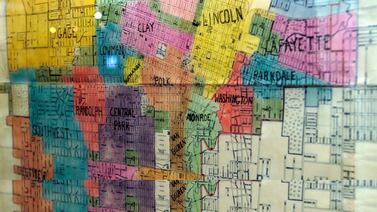Colorado residents interested in early childhood and five other high-demand careers can get training for free starting this fall at more than a dozen community colleges around the state.
It’s part of a new $40 million state program called Career Advance Colorado that’s intended to mint thousands of workers in shortage areas. Besides early childhood education, the program will cover tuition, course materials, and fees for up to two years of training for students studying education, construction, law enforcement, nursing, and fire and forestry.
“All these fields are in need of great folks to fill jobs that are open today and that are critical for our state’s success,” said Gov. Jared Polis in a recorded announcement about Career Advance.
The program is open to new students and those currently enrolled in one of the six target areas. For those already enrolled, the state will pay for their remaining coursework.
The offer of free training for prospective early childhood employees comes amid an ongoing shortage of child care and preschool teachers that’s led to shuttered classrooms at some centers. The need for qualified staff has become even more pressing as Colorado prepares to launch a major expansion of tuition-free preschool in August. More than 31,000 4-year-olds are expected to participate.
Career Advance is the latest effort by state policymakers to beef up the anemic pipeline of early childhood teachers. In recent years, the state used COVID stimulus money to pay for two introductory early childhood classes for hundreds of college students. It also offered scholarship and apprenticeship programs for students seeking early childhood credentials.
In Colorado, where the median preschool teacher wage is around $15.25 an hour, it’s hard to make a living in the early childhood field. The cost of college classes or student loan debt makes the barrier to entry even higher.
State officials and advocates recently have taken tentative steps towards addressing the field’s abysmal pay. As part of an effort to pay preschool teachers a living wage, the state pays a higher per-student rate in the new universal preschool program than it pays public schools for each K-12 student. In addition, the state recently unveiled a report recommending a series of statewide early childhood salary scales that would significantly boost pay. For example, the suggested rate would be at least $22 an hour for early childhood teachers in metro Denver and some mountain communities. The salary scales are not binding for preschool and child care providers, but show what workers in different regions would need to earn to make a living wage.
Ann Schimke is a senior reporter at Chalkbeat, covering early childhood issues and early literacy. Contact Ann at aschimke@chalkbeat.org.








